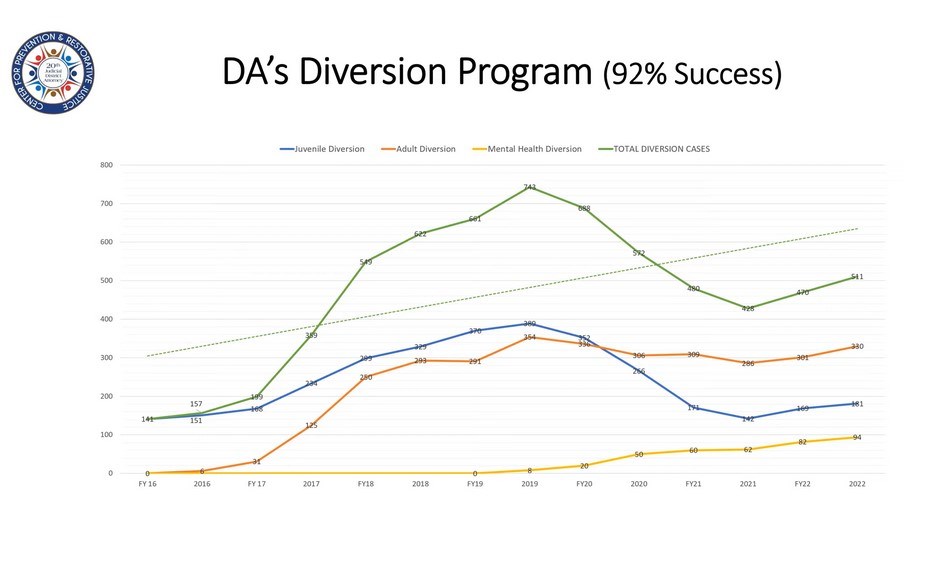The Boulder County District Attorney’s Office is continuing to see positive results from its restorative justice and diversion programs.
Boulder District Attorney Michael Dougherty and Director of Diversion and Restorative Justice Elaina Shively updated the Longmont Area Democrats and Boulder County Democratic Party about juvenile justice reform and its restorative justice and diversion programs during a virtual meeting Wednesday.
Dougherty outlined some recent crimes committed by people with previous criminal histories and often warrants. One example was Jesus Hilario Rodela, who was on parole and the subject of two active arrest warrants when he stole a car and ended up shooting at two Longmont police officers.
Rodela recently pleaded guilty and was sentenced to 60 years in prison.
“I think we’d all agree, knowing many of you, that ideally what should have happened here is in his earlier interactions with the justice system — as a community, as a society, as a system — successfully intervened so that this day never happened,” Dougherty said. “That’s our goal. That’s our dream to continue reducing the likelihood that these things ever happen.”
Doughtery emphasized his desire to work “upstream” to address public safety issues, instead of using just criminal sentencing to deter crime and reoffenders.
“If all you have is a hammer, everything starts to look like a nail,” he said. “What we’ve done in the justice system here in Boulder County is develop a lot more tools than just a hammer and a lot more programs, resources and support to improve the likelihood that people are never going to return to the justice system and improve community safety at the same time.”
Juvenile justice, restorative justice and the district attorney’s diversion programs are some of those tools.
Shively explained that young people are treated differently in the justice system, not just with legal definitions, but because of the impact stepping into a courtroom can have on them and the fact that they are often more amenable to rehabilitation.
The Boulder County District Attorney’s Office had one of the first juvenile diversion programs in the state, a program that continues to grow and evolve today. Diversion is an alternative to criminal conviction which, if completely successfully, leads to a dismissal of charges and a clear record.
Studies have found that diversion and restorative justice are some of the most effective ways to drive down recidivism rates for low risk offenders. The program is evidence based and individualized, along with being trauma informed and culturally responsive, Shively explained.
“There’s really not one size fits all for restorative practices,” she said.
The restorative justice team is half bilingual and bicultural, with all members receiving annual training from OUT Boulder County.
The restorative justice program is victim centered, giving victims of crime a voice and choice of participating in the process. Victims are able to ask questions and play active roles in the process, with an outcome that is more concrete and related to the crime committed against them.
Last year, 55% of juvenile cases were diverted at the district attorney’s office, while the overall number of juvenile filings continues to decrease.
Across the various diversion programs offered by the office, all have a more than 90% success rate, meaning the offenders accepted accountability and repaired harms to have their cases dismissed so that the collateral consequences of a criminal record did not follow them.
Less than 10% of people who go through the diversion process end up committing another crime, according to the district attorney’s office. Additionally, 99% of victims report satisfaction with the process, with many reporting feeling less anger and more safe following the process.
Defendants also report gaining a greater understanding of the impacts of their choices, better empathy skills and increased community connections.

.jpg;w=120;h=80;mode=crop)

